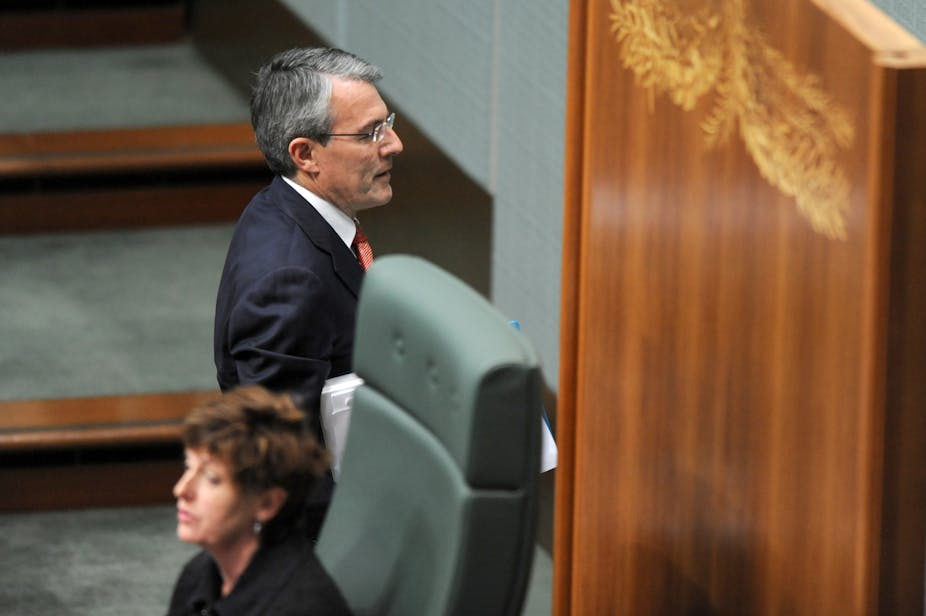The Gillard government has withdrawn its political funding reform bill after the opposition performed an about-face and dropped its support for the proposal.
In a May 24 letter circulated by attorney-general Mark Dreyfus, opposition leader Tony Abbott said:
I am satisfied with the agreement reached and indicate the Coalition’s intention to support the legislation and to deal with it, as requested, before the end of the sittings.
However, Dreyfus then announced that the bill would no longer proceed, citing the loss of Coalition support.
In withdrawing the Coalition’s support, Abbott noted a backlash against the bill from the public and Coalition MPs, stating: “the firm view that I’ve formed is that this is not the right time for a bill like this,” declaring the bill was “dead”.
To get a sense of the current state of political funding in Australia, The Conversation spoke with the Grattan Institute’s Andrew Norton, an expert on campaign finance.
What were the proposed party funding laws? Could you explain the changes briefly?
They were reducing the threshold at which people have to disclose their donations from currently about A$12,000 to A$5,000. It’s not yet entirely clear over what time period that is because the current system is over one year, but the previous version of this bill had disclosures every six months. We’re still unclear on that as we haven’t seen the legislation.
The other change is something new which is to introduce this idea of “administrative funding” to parties. For quite some years parties have been getting funding for campaign expenses, but that only occurs once every three years. The idea now is that they get ongoing funding to support their year-to-year operations and that’s the idea that seems to have people outraged at the moment.
What would it have meant for independents and minor parties? Does it further entrench a two-party system?
I think it does, but probably not dramatically more than previously. The problem for minor parties is that they have to hit the threshold of 4% of the vote before they become entitled to any funding. That’s generally not a problem for the Greens but it is a problem for most other small parties and new parties that might be thinking of starting up.
It effectively means that they have to be very, very careful about assuming that they will receive anything under the campaign finance system which means they have to be careful about how much they spend in the campaign, relative to the others.
If there’s no private donations and no public money, how do we fund political parties?
If you take out those two things, then you can’t fund them. Another thing that’s been criticised in the current proposal is that a lot of people think that public funding should be used to substantially control private donations.
So what you’ve got in New South Wales and Queensland is that there’s a cap on how much any one individual can give per year. The argument there is that if they’re not giving very much they can’t have what they would call “undue influence”.
With the federal system there’s no limit as to how much people can give. There wasn’t any limit in the previous version of this legislation and there’s been no word that there will be a limit in the current version.
How do we compare to other countries? What overseas governments could we model ourselves on?
My view is that the Australian system is reasonably good, compared to other countries. I’m quite sceptical of a lot of aspects of political finance law because I think they result in restrictions on political freedom and all sorts of perverse results.
By international standards, Australia has a quite liberal system in the sense that we have compulsory disclosure but not many other controls. The Commonwealth system leaves it up to the voters to decide whether or not a donation is a good or a bad thing, whereas in New South Wales and Queensland - other jurisdictions - my view is that the system second-guesses who should donate or how much they can give.
Some types of donors are banned, in addition to the donation caps. AT the national level, Australia is still at what I would call the liberal end of the campaign finance spectrum.

